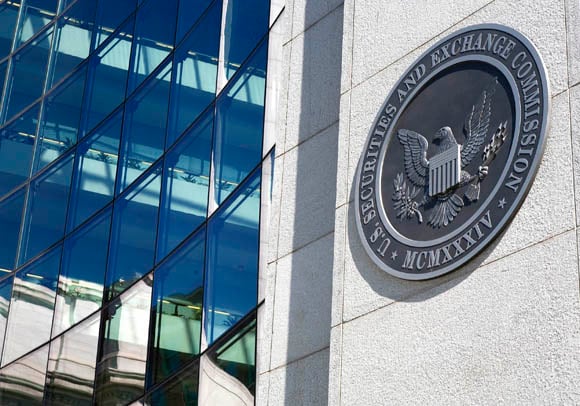The Securities and Exchange Commission would be authorized to charge investment advisers user fees to fund examinations of the sector under a bill that has been drafted by Rep. Maxine Waters, D-Calif.
Ms. Waters' measure would subject all advisers registered with the commission to the fee, according to a copy of the legislation obtained by
InvestmentNews. The SEC projected that it would have about 10,000 registered investment advisers as of early July, when those with less than $100 million in assets under management will be transferred to state oversight officially.
The bill would require that the SEC collect an aggregate amount of fees that would allow the commission to exceed the number of investment-adviser examinations that were conducted in fiscal year 2011. The SEC would determine fees for individual advisers, taking into account such factors as the firm's size, the number and types of clients, and their risk profiles.
Under Ms. Waters' bill, the Government Accountability Office, the investigative arm of Congress, would audit the SEC every two years to ensure that the user fees are used solely to pay for adviser examinations and not put toward other parts of the SEC budget.
It's not clear whether the bill has been formally introduced. A spokesman for Ms. Waters was not immediately available for comment.
Ms. Waters' may offer her bill as an
alternative to the Investment Adviser Oversight Act of 2012, when that bill comes to a vote in the House Financial Services Committee later this summer. The adviser oversight measure, which would authorize one or more self-regulatory organizations to oversee advisers, was written by the committee chairman, Rep. Spencer Bachus, R-Ala.
Ms. Waters and Mr. Bachus are responding to an SEC report to Congress in January 2011 that stated that the agency lacks the resources to oversee advisers thoroughly. In the report, the SEC said that it reviewed only about 8% of the approximately 12,000 registered advisers in 2011.
The report offered three ways to strengthen adviser regulation: allow the SEC to charge user fees, establish an self-regulatory organization, or allow the Financial Industry Regulatory Authority Inc. to extend its jurisdiction to include advisers who are dually registered as brokers. Each option requires congressional approval.
In introducing his bill in April, Mr. Bachus praised Finra for reviewing 58% of the more than 4,000 registered brokers in 2011. Although he has not explicitly endorsed Finra as the adviser SRO, he argues that such a body is required to increase investor protection and prevent an investor ripoff like the multibillion-dollar Ponzi scheme perpetrated by Bernard Madoff. Under his bill, adviser oversight would shift from the SEC to an SRO.
Investment advisers are vexed by the notion of an SRO, especially if it turns out to be Finra. They say that an SRO would add a costly new layer of regulation for advisers and threaten jobs.
They particularly oppose Finra as the SRO because they say Finra lacks the expertise to regulate the fiduciary duty standard that advisers must meet when dealing with clients. Brokers must adhere to a less stringent suitability standard.
Adviser advocacy groups back the SEC user fee approach for increasing the number of adviser examinations. They say that the commission would be the better adviser regulator because of its seven decades of serving in that role.
Ms. Waters' bill likely will be welcomed by SRO opponents.
“We're reviewing the draft and plan to provide comments to Ms. Waters and her staff as soon as possible,” said David Tittsworth, executive director of the Investment Adviser Association.
Proponents of Mr. Bachus' bill said that the political reality is that Congress will never approve a big-enough SEC budget for the agency to increase adviser oversight substantially, without the help of an SRO.







